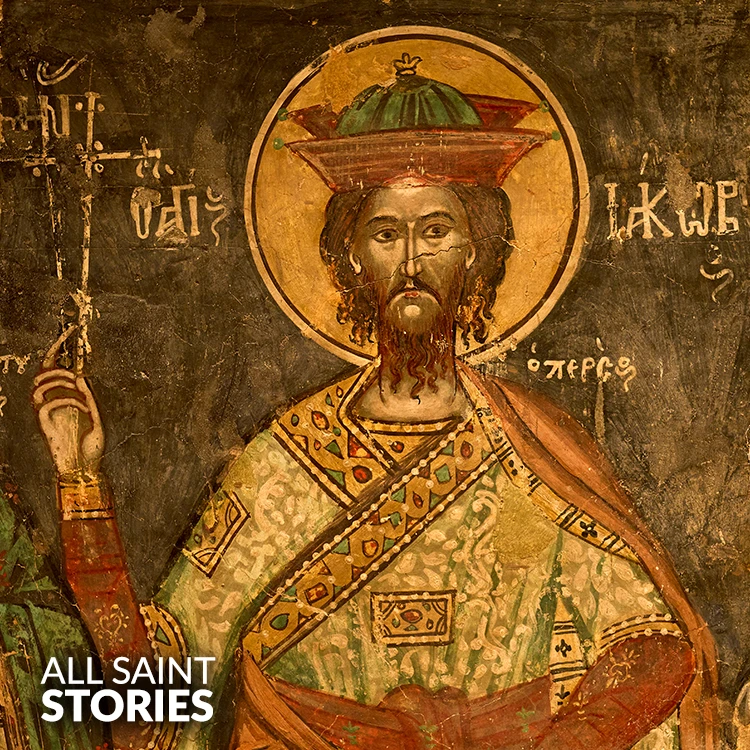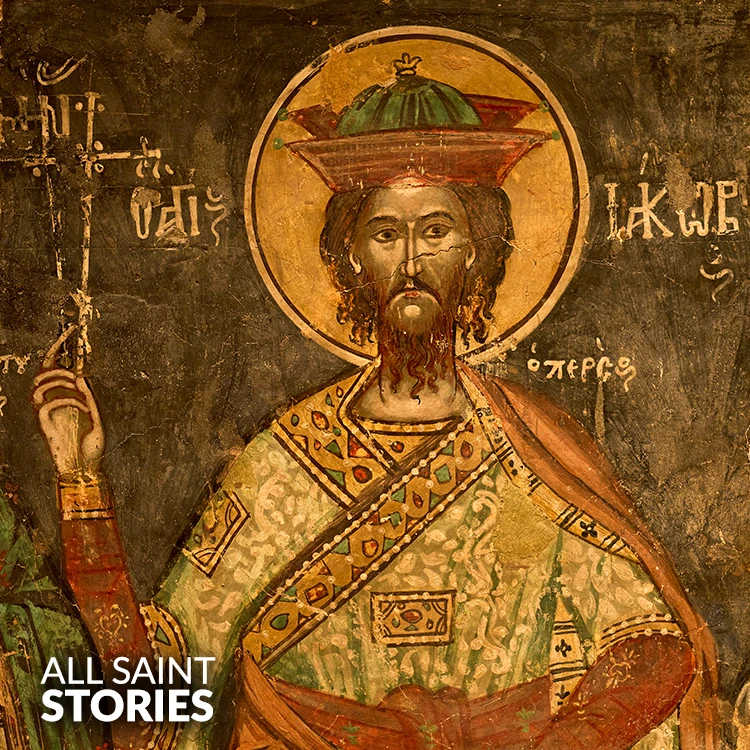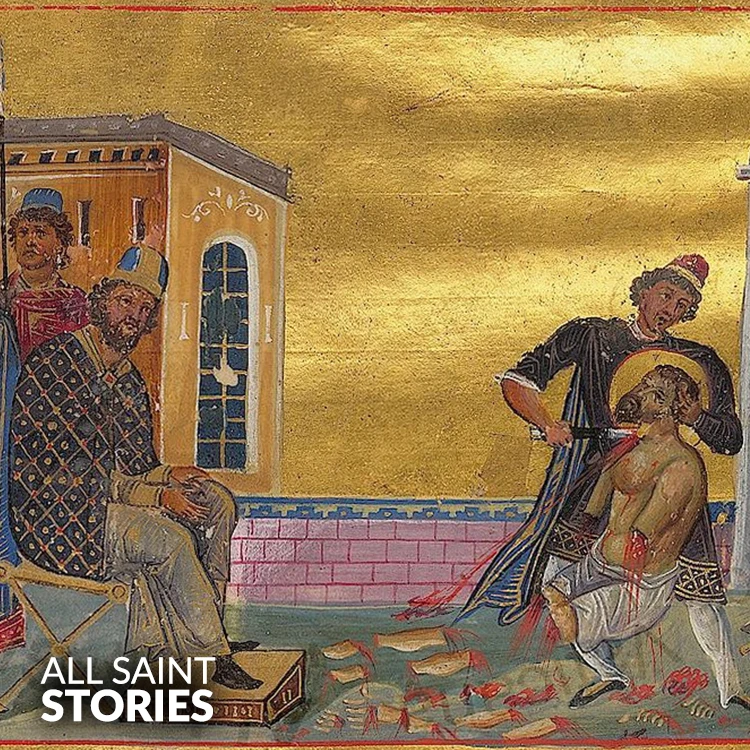St. James Intercisus, you gave your life in witness to Christ through unimaginable suffering. Pray for us that we may remain faithful in trials and never be ashamed of our faith. Strengthen us to follow your example of courage and perseverance. Amen.
ST. JAMES INTERCISUS
ST. JAMES INTERCISUS

St. James Intercisus was a Persian noble and court official who renounced Christ under pressure but later repented and bravely suffered a gruesome martyrdom for his faith during a Christian persecution.
St. James Intercisus, whose name means “cut into pieces,” was born in the late 4th century in the Persian Empire. A prominent Christian and high-ranking officer in the court of King Yazdegerd I of Persia, he faced a dramatic crisis of faith when the king began persecuting Christians. Out of fear, James publicly renounced his Christian faith, retaining his social position and favor at court.
However, this apostasy deeply grieved his devout Christian family—especially his mother and wife—who rebuked him for denying Christ. Their words pierced his conscience and led him to repentance. As the persecution intensified under Yazdegerd’s successor, Bahram V, James openly proclaimed his return to the Christian faith. He was immediately arrested and brought before the king, where he courageously refused to renounce Christ again.
Because of his prominent status, James’s defiance infuriated the king. He was sentenced to a particularly brutal execution designed to terrorize Christians. His body was dismembered limb by limb—each joint and limb severed slowly, hence the name "Intercisus"—before he was finally beheaded. Despite the pain, he remained resolute and prayerful throughout the ordeal, professing his faith until the end.
St. James Intercisus became one of the most venerated martyrs of the Eastern Churches, especially in Persia and Byzantium. His relics were highly honored, and his story spread throughout the Christian world, becoming a symbol of repentance, courage, and martyrdom. Churches were later dedicated to him in Jerusalem, Rome, and Braga, Portugal.
Video Not Found
The information on this website is compiled from various trusted sources. While we aim for accuracy, some details may be incomplete or contain discrepancies.
If you notice any errors or have additional information about this saint, please use the form on the left to share your suggestions. Your input helps us improve and maintain reliable content for everyone.
All submissions are reviewed carefully, and your personal details will remain confidential. Thank you for contributing to the accuracy and value of this resource.
Credits & Acknowledgments
- Anudina Visudhar (Malayalam) – Life of Saints for Everyday
by Msgr. Thomas Moothedan, M.A., D.D. - Saint Companions for Each Day
by A. J. M. Mausolfe & J. K. Mausolfe - US Catholic (Faith in Real Life) – Informational articles
- Wikipedia – General reference content and images
- Anastpaul.com – Saint images and reflections
- Pravachaka Sabdam (Malayalam) – Saint-related content and insights
We sincerely thank these authors and platforms for their valuable contributions. If we have unintentionally missed any attribution, please notify us, and we will make the correction promptly.
If you have any suggestion about ST. JAMES INTERCISUS
Your suggestion will help improve the information about this saint. Your details will not be disclosed anywhere.
© 2026 Copyright @ www.allsaintstories.com




 English
English
 Italian
Italian
 French
French
 Spanish
Spanish
 Malayalam
Malayalam
 Russian
Russian
 Korean
Korean
 Sinhala
Sinhala
 Japanese
Japanese
 Arabic
Arabic
 Portuguese
Portuguese
 Bantu
Bantu
 Greek
Greek
 German
German
 Dutch
Dutch
 Filipino
Filipino